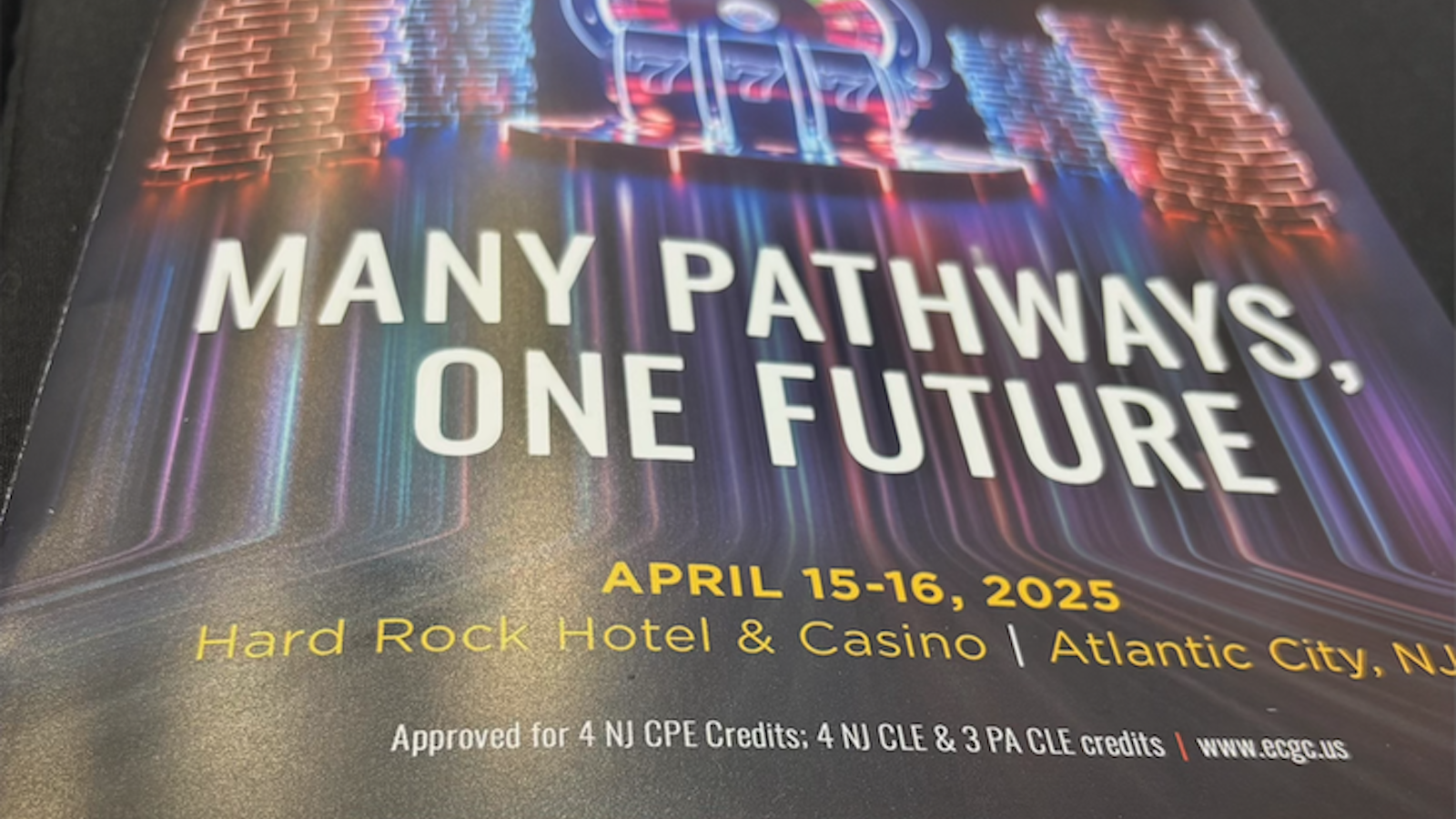Future Of Sweepstakes, Event Contracts Dominating Conversation At Atlantic City Conference
Panelist: ‘These forms of gaming tend to position themselves right on the edge of legal vs. illegal’
4 min

In recent years, it has become common for there to be a hot topic or two that dominates the conversation at the annual East Coast Gaming Congress in Atlantic City.
On Tuesday, the first day of the two-day conference at the Hard Rock Casino along the fabled Boardwalk, that was true again.
The form of mobile gaming commonly referred to as “sweepstakes casinos” was a key point of discussion at the panel titled “Future Shock: Confronting Unprecedented Changes in Gaming” — and to a lesser extent, so was the subject of “prediction markets” or “event contracts.”
David Katz, a gaming and entertainment industry stock analyst for Jefferies Capital, said during an earlier panel Tuesday that the controversy over the legality of growing new products is nothing new.
“These forms of gaming tend to position themselves right on the edge of legal vs. illegal,” said Katz. “But now it’s not as simple as it was in earlier days. Some may need to be legalized, some may need to be swept away. You have to pick and choose.”
Endorsements and opposition
Panel moderator Lynne Kaufman of the Cooper Levenson law firm pointed out that celebrities Ryan Seacrest, Drake, and Michael Phelps all have appeared on television commercials touting online sweepstakes gaming.
As far as the fact that 40 states have legalized sports betting while only seven of them have authorized real-money online casino gaming, or iGaming, Shawn Fluharty — the president of the National Council of Legislators from Gaming States and a member of the West Virginia House of Delegates who led the charge to expand legal gambling to both mollie options there — said it would be an overbid to say that the latter gaming is “floundering.”
Fluharty said that more states introduced iGaming bills in the first quarter of 2025 than ever before, and that what he described as President Donald Trump’s signaling to state budget leaders that “you are on your own” means that states will have to get creative in raising new revenue in ways other than a direct tax on voters. That, Fluharty said, may hasten efforts to add iGaming to the table for many states.
New Jersey, the first state to adopt a competitive and legal online casino gaming market in 2013, last year collected $358.3 million in taxes from the vertical.
Andrew Winchell, the head of government affairs for operator Betr, agreed with that sentiment. He added that as occurred with sports betting since a historic U.S. Supreme Court ruling in 2018, whenever a neighboring state passes online casino gambling, lawmakers will be reluctant to see their constituents cross state lines and send millions in tax revenue annually from iGaming to that other state.
Fluharty said that the approach regarding the issue of how legislators address sweepstakes games likely will vary for each state. For those with legal iGaming, he expects sweepstakes casinos will be doomed.
“Those states, they will have more success in ridding the state of ‘bad actors,'” he said, with extensive established gaming laws in place making it more difficult for sweeps operators to prevail if they go to court.
Advice given on iGaming legislation
As for the other 43 states, Fluharty recommended an approach that not only pushes for iGaming legalization, but also specifically bans sweepstakes in the same bill so that the new iCasino operators know they won’t have to deal with such highly publicized competition.
Winchell, however, pointed to a famous lawsuit over whether American cheese qualified for that definition given the traditional description of the product. After an acrimonious period, eventually it was settled that Kraft and other large manufacturers could call their offerings “cheese food” or “cheese product” — or even just “slices.” It’s possible that trying so hard to define sweepstakes gaming may also lead to a protracted court battle, he suggested.
After the panel concluded, Winchell told Casino Reports that the same principle also can be tied to sports event contracts via prediction market sites, which also offer consumers a chance to risk money without the form of wagering being clearly authorized in any state.
“Philosophically, I guess you could say that,” Winchell said. “There are differences. But it’s about what are you trying to achieve: If you are trying to protect consumers, there are ways to do that, to make sure there are legitimate operators — such as not approving events with self-excluding patrons.”
Fluharty said that the controversy over Kalshi — the most prominent of the prediction market operators now open for business on sports outcomes — “is going to be a federal issue, decided there at the end of the day.” But he predicted that Kalshi and its rivals will meet the same fate as sweepstakes companies in the seven legal iGaming states, because those operators already have spent millions of dollars gaining a state’s legal imprimatur.
“If it walks like a duck, and talks like a duck, then it’s probably a duck,” said Fluharty, dismissing the idea that the markets being gambled on will be treated as “commodities.”
“Good luck!” Fluharty said, with a flourish, regarding that idea.
Winchell, a former executive for FanDuel — a dominant operator in daily fantasy sports for years before legal sports betting came along — said that the 40 states where FanDuel and its main rival DraftKings operate for DFS are almost evenly split between no regulation and some sort of basic regulatory structure. He said that as it turned out, a lack of eagerness by lawmakers and legislators to shut down the product in the early years actually gave DFS “a safe bubble to go ahead and innovate.”
David Brace, Continental 8’s leader in the innovation and technology sector and another panel member, said that he knows of three overseas sportsbook operators who were researching an entrance into the U.S. market. But then, given the cost of entry and unlikelihood of gaining significant market share for many years — if ever — “all three flipped a switch to sweepstakes” in hopes it is not rendered illegal.
Brace and Fluharty, who also is the head of government affairs for Play’N’Go, said their companies are staying away from the sweepstakes controversy — with Brace describing that decision as “playing the long game” in the U.S. gambling industry.






